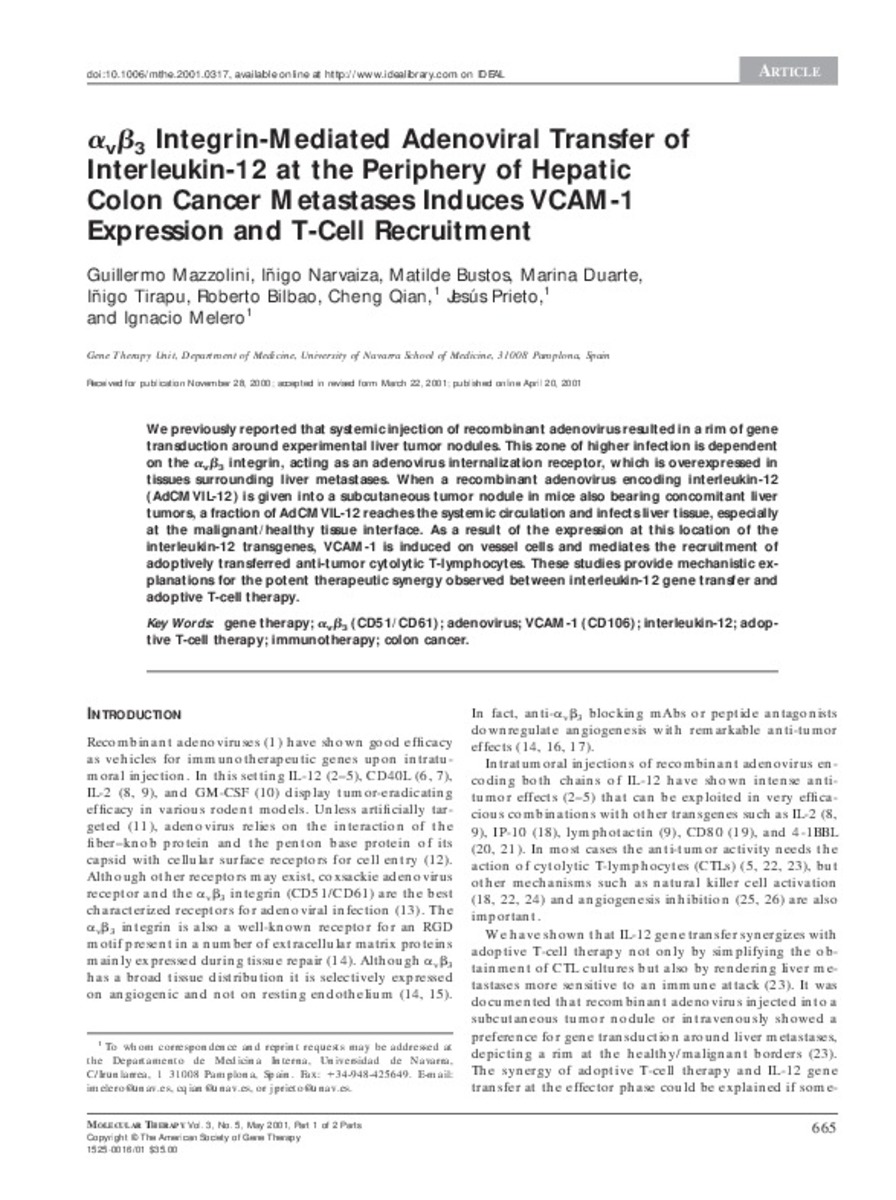Alpha(v)beta(3) integrin-mediated adenoviral transfer of interleukin-12 at the periphery of hepatic colon cancer metastases induces VCAM-1 expression and T-cell recruitment
Palabras clave :
Gene therapy
avb3 (CD51/CD61)
Adenovirus
VCAM-1 (CD106)
Interleukin-12
Adoptive T-cell therapy;
Immunotherapy
Colon cancer
Fecha de publicación :
2001
Editorial :
Nature Publishing Group
Cita:
Mazzolini G, Narvaiza I, Bustos M, Duarte M, Tirapu I, Bilbao R, et al. Alpha(v)beta(3) integrin-mediated adenoviral transfer of interleukin-12 at the periphery of hepatic colon cancer metastases induces VCAM-1 expression and T-cell recruitment. Mol Ther 2001 May;3(5 Pt 1):665-672.
Aparece en las colecciones:
Estadísticas e impacto
0 citas en

0 citas en

Los ítems de Dadun están protegidos por copyright, con todos los derechos reservados, a menos que se indique lo contrario.








